Conclusions from the Tour of Flanders
New course fails to inspire and QuickStep rudderless without Boonen
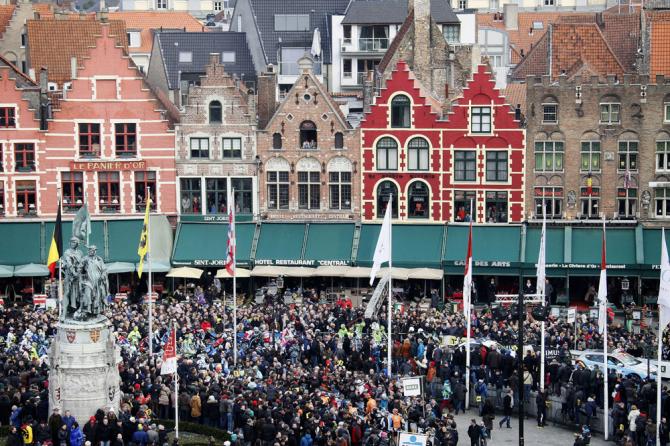
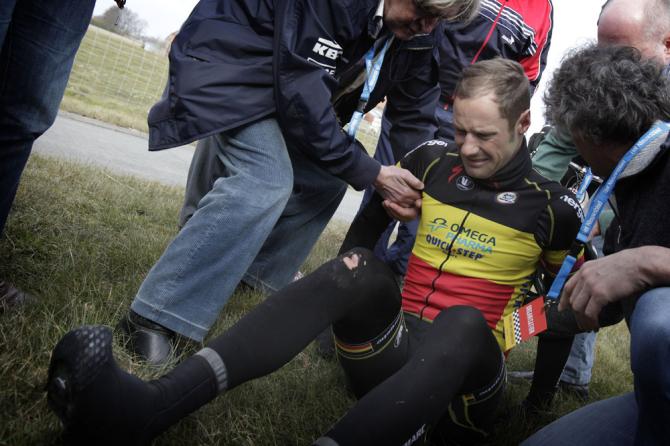
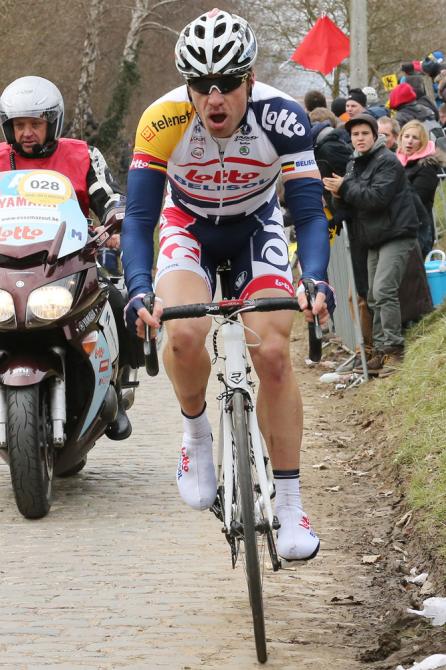
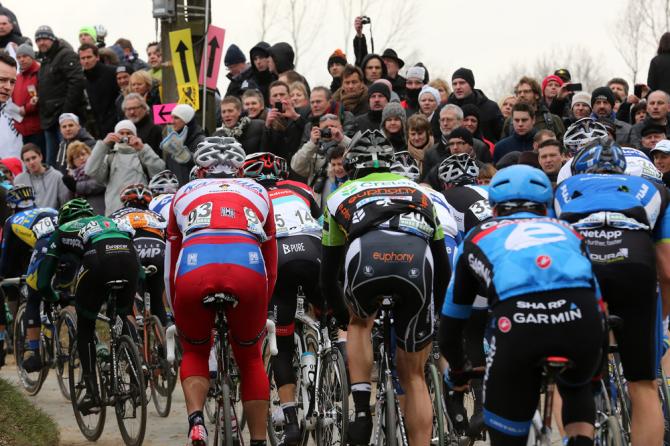
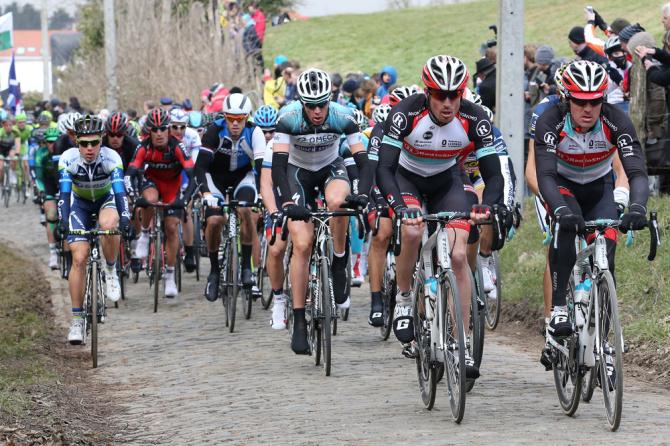
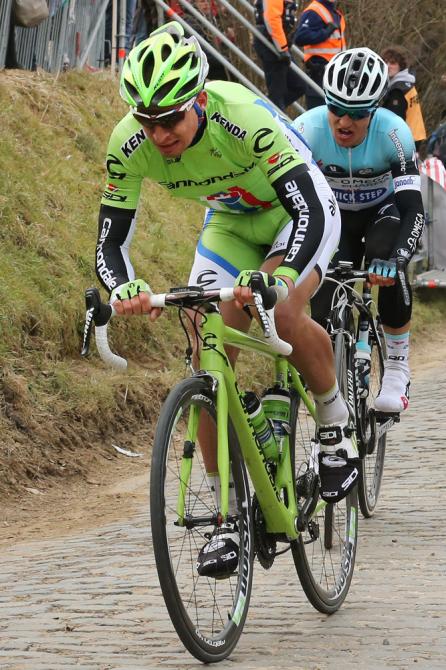
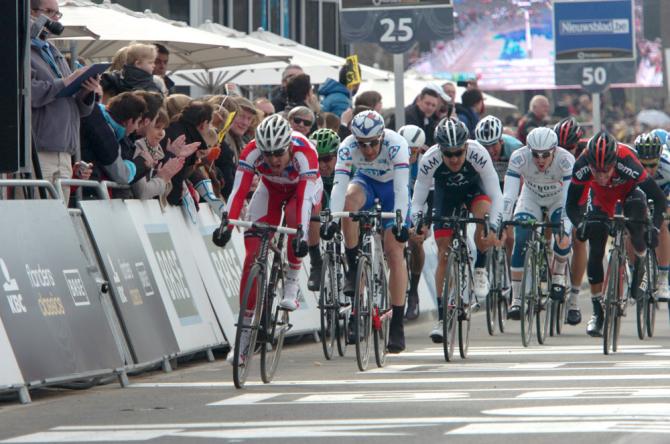
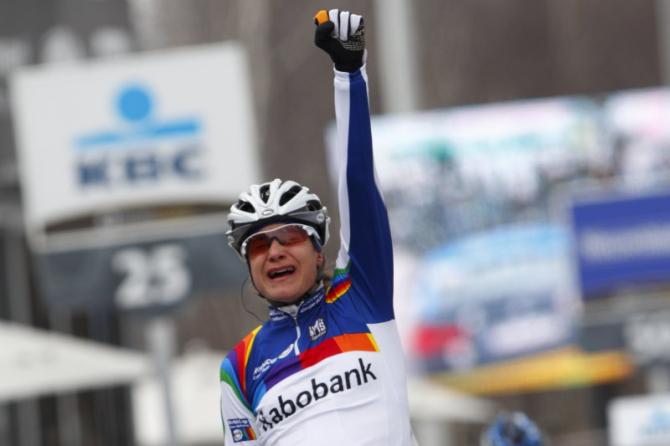
Jury still out on new course
The Tour of Flanders is always a momentous occasion but there are concerns that it risks becoming less fascinating race due to the new route introduced last year. Once again, the circuits over the Kwaremont and Paterberg failed to fire the imagination and the race remained largely deadlocked until the final lap.
Yes, the strongest man deservedly won on Sunday, but cycling would be a sorrier spectacle if races were decided on power output alone. It took a strongman to win on the old course over the Muur and Bosberg, too – as Fabian Cancellara himself showed in 2010 – but there were also rewards on offer for riders who showed a degree of ingenuity and invention.
Sylvain Chavanel complained afterwards that the difficulty of the finale inhibits early attackers and means that the race is destined to remain blocked until the last time up the Kwaremont. The pace was high – particularly in the frenetic opening two hours - but the selection happened largely at the back of the bunch rather than the front. And while the Kwaremont-Paterberg circuit fills VIP tents and placates sponsors, it does precious little for the race as a sporting spectacle, with the favourites understandably reluctant to show their hand on the first two times up those climbs.
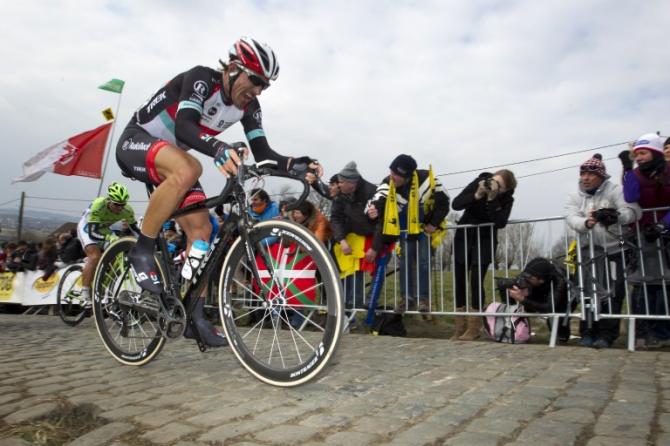
Lotto Belisol do their best to hit the jackpot
The new circuit has garnered its share of criticism, but one team did its level best to be inventive regardless. Lotto Belisol were aggressive throughout the race as they looked to pre-empt the inevitable showdown between Cancellara and Peter Sagan on the final lap over the Kwaremont and Paterberg.
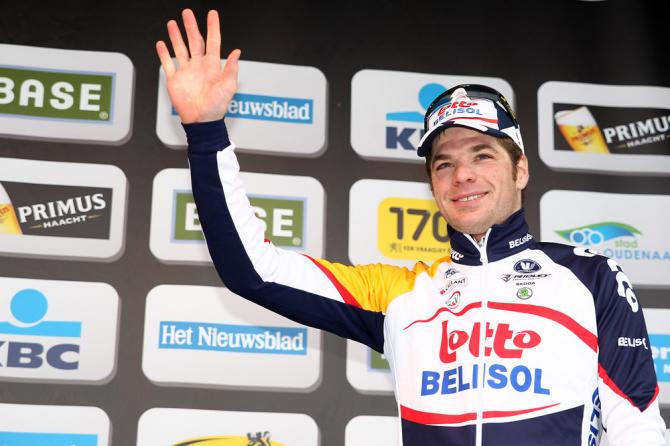
Sky’s high life yet to pay off
In contrast to Lotto Belisol, Team Sky had precious little impact on the development of the race, with Edvald Boasson Hagen (17th) the highest finisher. There were some mitigating factors – Geraint Thomas used up a lot of energy chasing back on after crashing before the second climb of the Kwaremont – but it was a disappointing showing from the British squad.
Sky’s decision to have its classics squad train in the seclusion of Mount Teide rather than race Paris-Nice or Tirreno-Adriatico was the source of considerable intrigue before the classics, but so far, the most recent manifestation of the marginal gains philosophy has yet to pay dividends, Ian Stannard’s aggression at Milan-San Remo notwithstanding.
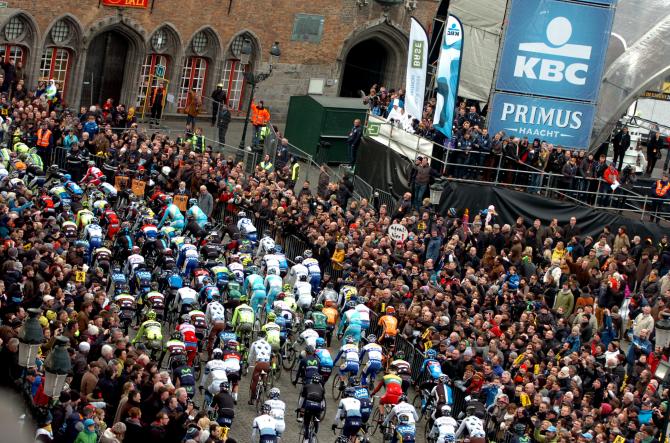
QuickStep out of rhythm
When the season started it was widely acknowledged that a repeat of the 2012 invincible season would be almost impossible to achieve. Lightening couldn’t strike twice and with a returning Cancellara, a hungry Sagan and a limping Boonen, Omega Pharma-QuickStep was a team with a target on its back.
The latest race content, interviews, features, reviews and expert buying guides, direct to your inbox!
However as the races ticked by, and the wins and podiums slipped through their fingers, the Belgian dynasty appeared to run out of ideas. By the time of their Flanders press conference Lefevere almost knew that the game was up: Sagan and Cancellara were too strong, even with a morale-boosting win in De Panne to give them hope.
Of course it’s fair to say that if Cancellara or Sagan are taken out of the equation, both of their teams would struggle for Classics results too, but Lefevere and his staff could have seen Boonen’s struggles before Flanders a mile off.
Sylvain Chavanel never really seemed to have the entire commitment of his team – although he never really called for it either – and Niki Terptra has been too inconsistent of late.
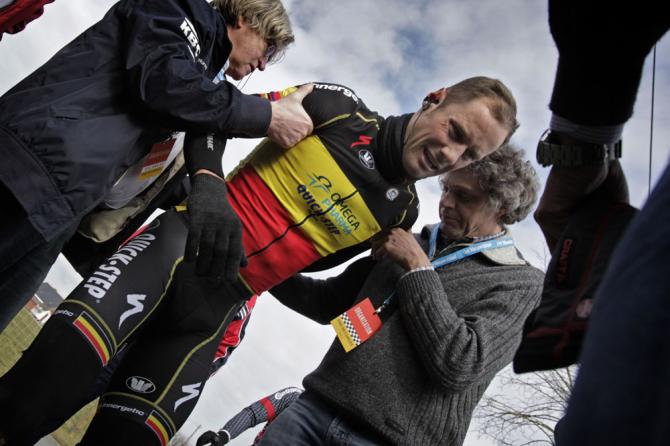
RadioShack startle with strength in depth
While Fabian Cancellara’s strength has never been in doubt, the ability of his team has been questioned ever since he left the Bjarne Riis stable to join the nascent Leopard project in 2011. That spring, Cancellara was left isolated and frustrated in the finale of both the Tour of Flanders and Paris-Roubaix, and as recently as Friday afternoon, manager Luca Guercilena admitting to reporters that his team was not as strong as the likes of BMC and Omega Pharma-QuickStep.
On Sunday, however, RadioShack pulled out a surprisingly committed collective performance. Hayden Roulston put in a mammoth stint on the front of the peloton on the first circuit of the Kwaremont-Paterberg circuit but Stijn Devolder’s showing ahead of the finale was particularly remarkable.
Devolder had reportedly travelled to Spain for a mini training camp during the week and he showed the fruits of the trip by sitting at the front of the bunch and controlling affairs ahead of the final circuit over the Kwaremont and Paterberg. The Belgian’s display was all the more striking given that he had punctured shortly beforehand and had to give chase alone.

Cancellara the overwhelming favourite for Paris-Roubaix
It’s déjà vu all over again. Three years ago, Cancellara’s emphatic Ronde victory made him the overwhelming favourite for Paris-Roubaix seven days later and the sense of inevitability is even more distinct this time around. With Tom Boonen an absentee, with perennial hopefuls Thor Hushovd and Filippo Pozzato short of form and with relatively few fresh contenders emerging, it’s hard to see how anything other than ill fortune can prevent Cancellara from winning a third Paris-Roubaix.
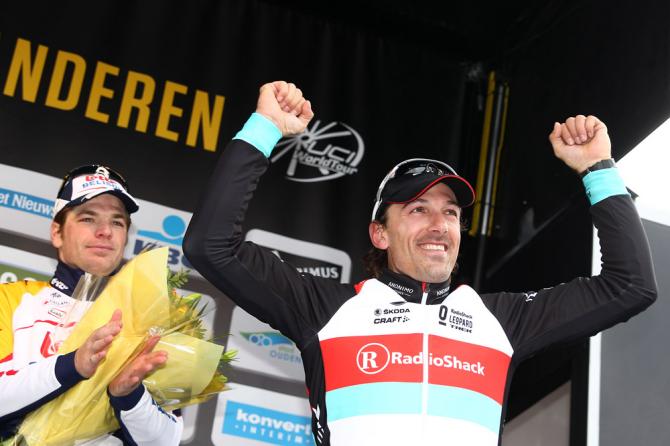
Pozzato and Hushovd feeling the heat
Filippo Pozzato (Lampre-Merida) began the season with a bang thanks to victory at the Trofeo Laigueglia in February, but his classics campaign is set to end with a whimper unless he manages a dramatic turnaround at Paris-Roubaix next week. Although his fate was sealed by mechanical trouble on the Paterberg, Pozzato admitted that he was already on a bad day – “I wasn’t super,” he said – and at 31 years of age, he is fast running out of chances to add another monument to his Milan-San Remo victory of 2006, when he was trained by Dr. Michele Ferrari [Pozzato was suspended for three months last summer after admitting to their collaboration.]
Pozzato’s anonymous showing on Sunday was in the same vein as his display at Milan-San Remo two weeks ago, and he seems a shadow of the man who pushed Tom Boonen so close at the Tour of Flanders last year. If he falls short again at Roubaix, it will be third time in four years that Pozzato has made next to no impact in the spring classics.
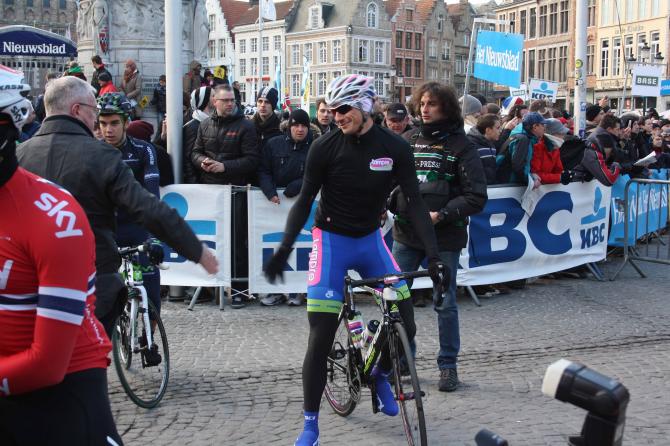
Women’s coverage remains a conundrum
The best rider in the world won the Tour of Flanders in front of hundreds of thousands of screaming fans on Sunday afternoon and nobody was paying attention. No, not Fabian Cancellara, but Marianne Vos. The world champion claimed an overdue victory at the women’s Tour of Flanders in Oudenaarde but her triumph was overshadowed by the men’s race which was entering its decisive phase just as Vos was taking out the sprint.
It’s a truism that the profile of women’s cycling can only be boosted by holding more events in tandem with men’s races, with the London 2012 Olympics often highlighted as exhibit A. But would that magnificent women’s road race in London have made anywhere near the same impact if it had taken place on the same day as the men’s race and without live television coverage?
Placing the women’s Tour of Flanders (and, indeed, the women’s Omloop Het Nieuwsblad and Flèche Wallonne) on the same day as the men’s events ensures enormous crowds on the roadside but – paradoxically – also limits the amount of television airtime it will receive from the outset.
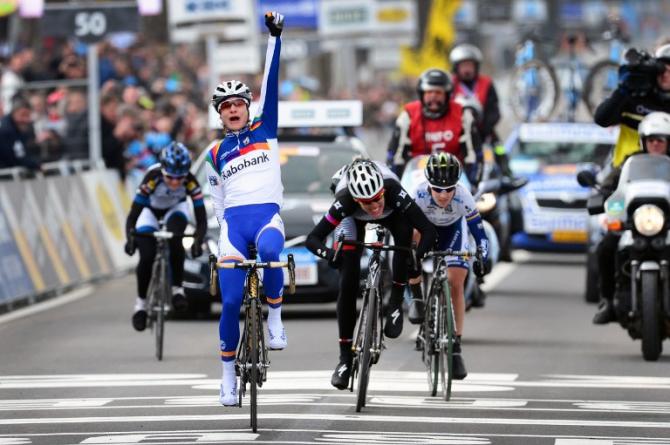

Barry Ryan was Head of Features at Cyclingnews. He has covered professional cycling since 2010, reporting from the Tour de France, Giro d’Italia and events from Argentina to Japan. His writing has appeared in The Independent, Procycling and Cycling Plus. He is the author of The Ascent: Sean Kelly, Stephen Roche and the Rise of Irish Cycling’s Golden Generation, published by Gill Books.